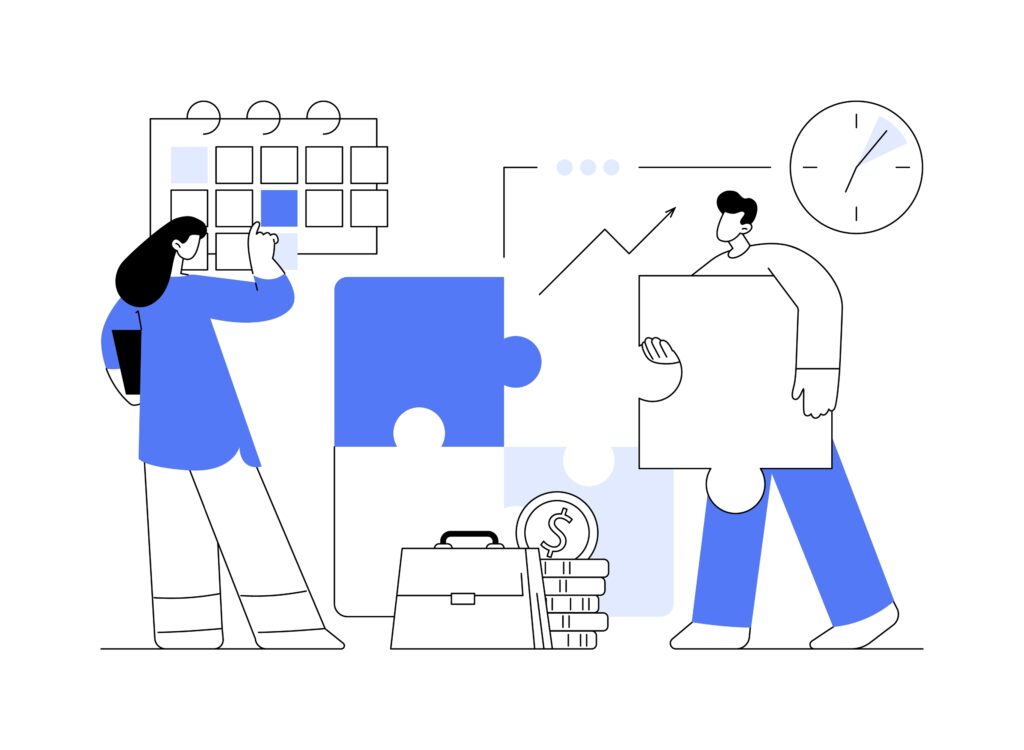Managing Customer Expectations in Fixed Operations: Dealer Talk Guest Post Author: Leo O’Brien
While the simple truth of the matter is that bigger dealerships have more money and resources,
it’s important to understand that excellent customer service is possible regardless of financial
status. The key to delivering that high-level customer experience every day is consistency in
how you set expectations, communicate, and deliver on those expectations. Service drives are
no different from any other business in this respect. You have at least 5 different steps in the
process of each sale to show your client that you value their business, and that they made the
right choice in opting to work with you. It’s in your best interest to take advantage of every single
step and in doing so, you’ll retain control of the transaction and ensure success every time.
Offer convenient scheduling options
Ease of scheduling is the first way to demonstrate your commitment to making the process as
convenient and streamlined as possible. If you can have a dedicated appointment setter
working in the dealership, you automatically improve the line of communication and improve
your pipeline for future business. That should be the baseline, and there are newer, flashier
methods to add to your arsenal once that base level has been established. You can also have
that appointment setter working via email, as many customers prefer to communicate that way
instead. To really put your best foot forward, consider implementing an online scheduling
system. If you’re only setting appointments over the phone, you’re somewhat bottlenecking your
business by relying on the human factor. Take a look into some of the appointment-setting
services on the market and choose the best option for your unique situation. It’s an extra
expense, but your customers will undoubtedly be impressed by ease-of-use. This first step is
the customer’s first interaction with your business, so it’s important to make it as easy and
simple as possible.
Set realistic expectations
Once your customer sets foot in the dealership, it’s your job to set realistic expectations for the
scope of work. Make sure that you understand exactly what they’re looking for from the very
beginning. What does a job-well-done look like to them? You don’t want any gray area in this
initial discussion. You’ll also want to provide a realistic time frame for when they can expect to
get their car back. The last thing you want to do is over-promise and under-deliver. If it’s going to
take some time due to availability or parts, be upfront about it. Nowadays it’s increasingly
difficult to hire and retain technicians, and that causes all sorts of delays in dealerships.
Learning how to hire automotive technicians can be tricky, especially with the current technician
shortage. If your dealership is booked out for a week or two because you’re not fully staffed, it’s
okay to let your customer know. The same goes for communicating pricing information. You
want to be consistent and clear in how you relay price so that there’s no surprises or
he-said-she-said. Strive to be transparent and honest throughout the entire process and your
business will only benefit.
Communication is key
To enhance customer experience, frequent communication is absolutely essential. Make sure
that every customer knows how to get in touch with their advisor. It’s important to understand
every customer interaction as the beginning of a relationship. Service advisors should take a
little bit of time to actually get to know their customers. Ask them questions about their car or
their life to get a sense of who they are. Establishing this relationship helps the experience feel
far less transactional on both sides, and helps mitigate potential issues down the line. Plus,
customers are far more likely to buy preventative maintenance from a helpful friend than
someone who comes off as disinterested or pushy. As far as the method of communication,
most customers favor text messaging, with 89% indicating it as their preferred channel of
communication with businesses (Twilio). By embracing text messaging, service employees can
provide real-time service updates to customers without the need for phone calls or returning to
their workstations. Handy services like MyKaarma can help service drives take that
communication to the next level by enabling phone, text, and email conversation directly
between service advisors and customers.
Comfort Perks
Once the customer has signed off on their repair(s), you want to close out the interaction in a
way that shows you care. If you have a shuttle service at your dealership, have the driver ready
to give the client a ride home. If you don’t, you can schedule an Uber to show up right as you’re
wrapping things up. And that applies to returning to the store as well; have that shuttle or Uber
give them a ride back to the dealership when the repair’s all done. If resources allow, you could
also provide a loaner car for the customer while your team works on the car. Obviously each of
these perk options have their costs, but it’s important to realize just how significant these extra
steps really are. Increasing your CSI not only helps retain your existing customers, but it helps
you bring in new ones as well. It’s ultimately a win-win situation, and it’s always worth the
expense. If your dealership doesn’t have the money for loaners or a shuttle, that reality may be
a symptom of a deeper problem. Increasing your profitability and efficiency should be a priority
so that you can adopt the kinds of amenities that will keep customers coming back.
Follow-Up
You want to maintain the same level of attention to detail from top to bottom, and that means
tightening up your follow-up protocols as well. Don’t ever leave a customer in a position where
they’re left wondering about the status of their car. Make sure your advisors all have a clear
understanding of the process, including how often they need to check in with customers, and a
running list of who they need to check in with every day. And follow-up after the appointment is
just as important as follow-up after the completion of the repair. Make sure that advisors are
checking in with customers as they leave to double-check that they were satisfied with their
experience. If your customer wasn’t satisfied, you don’t want to wait to find out in an online
review. And speaking of those reviews, it’s wise to monitor and respond to reviews as they come
in. If a customer leaves an angry review, it’s always a better call to apologize and offer to make
it up to them rather than disavow it and call them crazy. Future customers will see your replies
and give you credit for doing the right thing. It’s crucial to understand that you started the
transaction with care, so you should end it the same way. An old-fashioned way to show you
care is to send a hand-written thank you note. Not everyone thinks to personalize the process
by taking this extra step and it’s a great touch.
In Sum
Managing customer expectations is entirely within your control regardless of your
particular financial situation. If you do everything within your power to make the entire process
as easy as possible, the customer will take notice. Creating a robust online/phone scheduling
system is the best way to set the table for success. And once the service process is up and
running, it’s the service advisor’s responsibility to keep all lines of communication as open and
transparent as possible. No surprises on pricing or time frame. No going dark on the customer,
forcing them to call the dealership in a huff. No ambiguity at all whatsoever. And once the repair
is complete, how you end the transaction speaks volumes to the customer. Be kind, treat them
with dignity and respect, and take the extra step to personalize the interaction. Show that you
care and you will reap the rewards now and down the line.
If you would like to submit a guest post email us at [email protected]




